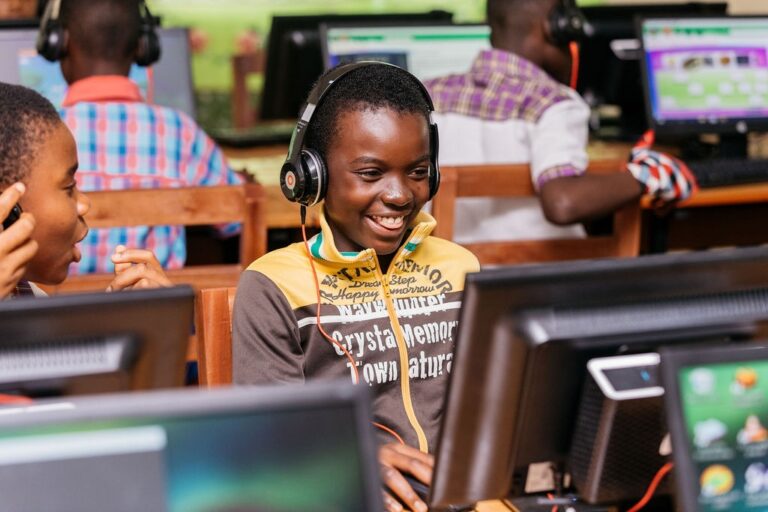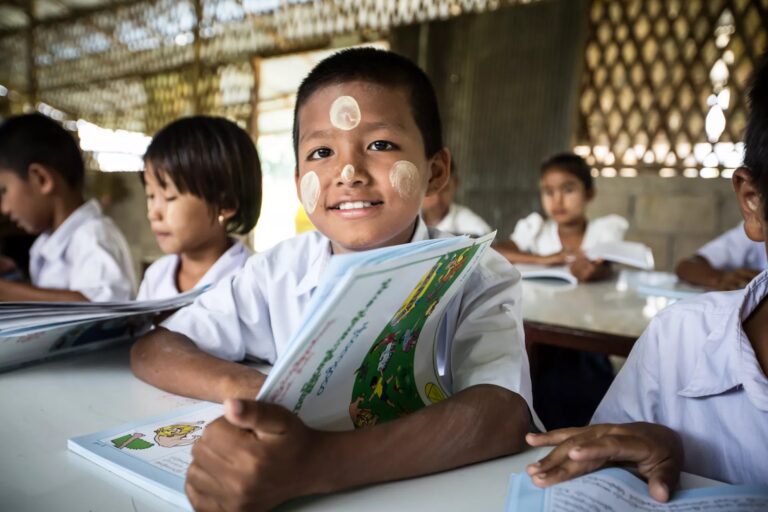Aman Rochman, The Jakarta Post, Malang, East Java | Sat, March 24, 2018 | 08:07 am
Several children were seen happily participating in a tug-of-war and bakiak (plank race) on Friday, in front of a residence in Sukosari village of Bantur district, Malang, East Java.
The regular activity was hosted by Galeri Kreatif (creative gallery), an initiative that was established in February 2011 as a space for children and youths – especially with parents who were working abroad as Indonesian migrant workers (TKI) – to play, learn, talk and receive counseling.
Founded by 27-year-old Muzeki, who is a guru ngaji (a teacher of Koranic recitation) at a pesantren (Islamic boarding school), the community center aims to nurture children and provide them with care, education and programs for building their character – guidance they don’t often receive at home because they are separated from their TKI parents.
“Eight years ago, we held our activities in different locations, usually in the empty yards of abandoned homes or buildings,” the bachelor told The Jakarta Post. “In 2016, I [was finally able to] build this gallery in [my] front yard by pawning my mother’s jewelry to raise Rp 7 million [US$509] in capital,” Muzeki added.
The gallery is open 24 hours, but the children usually come from 2:00 p.m. to 4:30 p.m. Older children in junior and senior high schools come by later in the evening. From Monday to Thursday, Galeri Kreatif offers regular activities such as painting, dancing, theater, English classes and tutoring sessions. It leads open activities from Friday to Sunday, when children can pursue any activity they want.
The evening activities run from 7 p.m. and cater to youths, incorporating activities such as helping each other with school assignments, youth-themed discussions and talks on the dangers of drug abuse.
Sixty-seven children and youths are current members of Galeri Kreatif, 50 percent of whom have parents that work abroad as migrant workers. The center also has around 20 volunteer members that have a high school or college education.
According to Muzeki, children and youths that lived with their grandparents in the village were usually spoiled, and tended to use the money their parents send for entertainment, on a new motorcycle or enjoying a relatively lavish lifestyle. Establishing a close relationship with the center’s volunteers had allowed these children to change their mindset and expand their knowledge for pursuing their dreams, so they could save their money as future capital and to pay for their education.
The Galeri Kreatif management communicates regularly with their members’ parents and sends photographs and videos of the center’s performances. The children rarely use their mobile phones during their time at the center, as they are busy with the many activities it offers.
“I’ve been coming to the gallery since I was 6 years old, and I live at home with my grandmother and aunt. My mother has been working in Saudi Arabia for five years. [Here], I can study and play with my friends,” said 9-year-old Rania Ayuni, one of the center’s younger members.
Galeri Kreatif runs several businesses to allow it to be financially independent, but it also welcomes donations such as children’s storybooks, animated videos, toys and games. (kes)



![[Preliminary Report] CRNA Collaborative Research for Exploring Factors Nurturing"Happy and Resilient" Children among Asian Countries](https://equity-ed.net/wp-content/uploads/2024/09/1725672182698.jpg)


